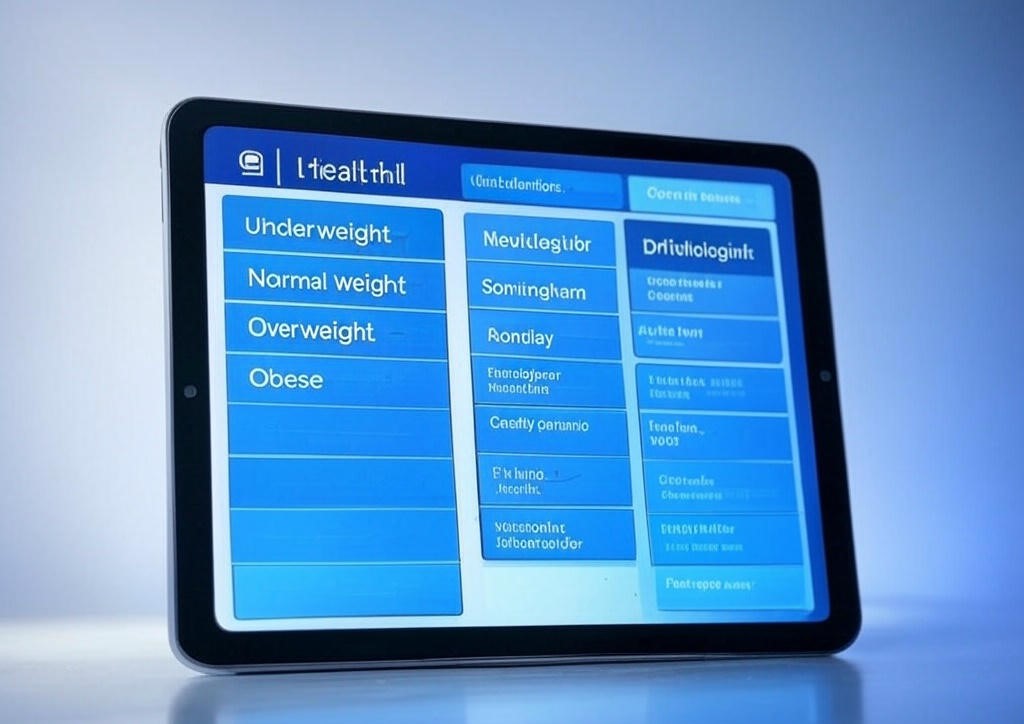BMI Calculator
What is BMI?
BMI, or Body Mass Index, is a widely used measurement that evaluates a person’s body weight relative to their height. It provides a quick estimate of whether a person is underweight, at a healthy weight, overweight, or obese. BMI uses a simple formula—weight (kg) divided by height (m²)—the BMI calculator is a popular tool in health, fitness, and medical fields.
Why Use the tool?
Using a BMI calculator is one of the simplest ways to assess your body composition and make informed decisions about your health. While it doesn’t measure body fat directly, it offers a fast and reliable method to categorize your weight and assess potential health risks.
 Top Use Cases of a BMI Calculator
Top Use Cases of a BMI Calculator
The BMI calculator is used across various fields, including healthcare, fitness, insurance, and public health research. Here are the most common and impactful use cases:
-
Health Assessment
Quickly identify if an individual falls into the underweight, normal weight, overweight, or obese category. This is essential for early health intervention and awareness. -
Track Weight Changes Over Time
Useful for individuals participating in diet or fitness programs who want to monitor progress regularly and evaluate the effectiveness of their routine. -
Evaluate Health Risks
A high BMI may indicate increased risk for conditions like type 2 diabetes, heart disease, high blood pressure, sleep apnea, and certain cancers. -
Set Realistic Fitness Goals
BMI helps individuals and personal trainers set achievable and healthy body weight targets for long-term success. -
Medical and Nutritional Planning
Health professionals use BMI readings as part of a full health assessment when creating tailored treatment or nutrition plans for patients. -
Insurance Health Evaluation
Insurance companies may use BMI data to assess health risk and determine policy terms or premiums. -
Public Health and Epidemiology
Governments and researchers analyze BMI trends across populations to study obesity, malnutrition, and health disparities. -
Educational and Workplace Wellness Programs
Schools, gyms, and employers often use BMI as an educational tool to promote healthier lifestyles.

 Limitations of BMI
Limitations of BMI
While BMI is helpful, it’s not a perfect measurement. Consider these limitations before relying solely on BMI data:
-
Doesn’t Distinguish Muscle from Fat
Athletes or muscular individuals may have a high BMI but low body fat. Likewise, older adults may have healthy BMI but high fat mass. -
Not Suitable for All Populations
BMI may not be accurate for children, the elderly, or people with unique body compositions. Ethnicity and gender can also influence body fat distribution. -
Does Not Account for Lifestyle or Overall Health
BMI doesn’t reflect factors such as physical activity, metabolic rate, or dietary habits. It should be used as part of a broader health evaluation.
 Conclusion
Conclusion
The Body Mass Index calculator is a valuable, quick, and easy-to-use tool that helps assess your weight category and identify potential health risks. Whether you’re setting fitness goals, creating a wellness plan, or tracking your progress, BMI offers a reliable starting point. However, for a complete picture of your health, pair BMI insights with expert advice and more comprehensive metrics like body fat percentage, waist circumference, and activity levels.
